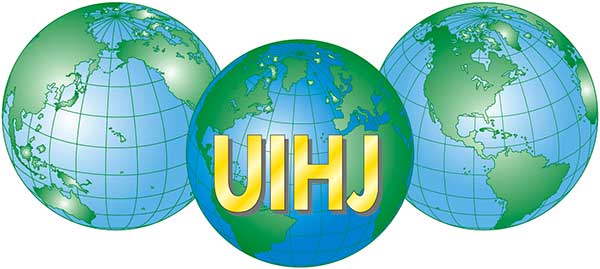Training
The aims and objectives of the UIHJ are in particular:
The implementation of any action intended to promote the professional training of judicial officers including, as the case may be, their staff or assistants.
The International Union of judicial officers, aware of the imperative of training, has made it one of the pillars of its action by anchoring it definitively in article 2 of its statutes.
Union and training go hand in hand
Why ?
Training is the surest way to progress.
Around or through training can be created the union, unification, standardization and therefore the harmonization pursued by the UIHJ in its actions.
Training is the backbone of our profession, it is a means and at the same time a technique for acquiring knowledge.
It therefore creates competence and thereby brings confidence and recognition to a profession.
The objective of the UIHJ relating to training is to bring out a highly qualified professional able to exercise all the activities related to his profession and contained in particular in point 34 of the CEPEJ guidelines:
34. Enforcement agents should, where appropriate, also be able to carry out ancillary activities compatible with their function, such as to guarantee and secure recognition of the rights of individuals subject to the acceleration of the judicial process or the congestion relief of the courts , such as:
– debt recovery ;
– public or voluntary movable and real estate auctions
– sequestration;
– statement of facts;
– hearing service at the courts;
– legal advice;
– bankruptcy procedures;
– missions entrusted by the judge;
– representation of the parties at the courts;
– drafting of private sub-agreements;
– teaching.
In a world of profound changes, where the socio-economic and technological environment is evolving accompanied by a profusion of laws, decrees, reforms that constantly create new demands, training is the only way for the judicial officer to adapt.
Yesterday, the judicial officer was a simple lawyer, his training made him a lawyer specialized in enforcement, then the CEPEJ guidelines consecrated him in his multidisciplinarity as the lawyer of the great profession of enforcement.
Today, he is at the same time lawyer, manager, business manager, but also salesperson, multilingual, mastering new technologies and rules of business management.
The only way to acquire these skills: training.
Continuing education re-opens the channels of information and education.
How?
The UIHJ multiplies actions around the world:
– in Africa with the UFOHJA, Training Unit, African Judicial Officers, thanks to which African colleagues receive twice a year technical training on various procedural subjects in particular and in relation to the application of uniform acts of the treaty OHADA (Organization for the Harmonization of Business Law). This internal training structure of the UIHJ has been operating for more than 20 years. The first training took place in Dakar in 1996 and was named “the Dakar Call”. It brings together at each session many African countries which allow training and communication between participants.
– in Europe: the UIHJ created in 2007 the European training day in order to familiarize fellow nationals of the European community with the various instruments useful to our profession.
Today this training is going digitally and the UEHJ is setting up a training platform with broad objectives both in the themes addressed which will include in particular transversal subjects such as the training of trainers but also will give way to inter-professionalism so that all European judicial staff can collaborate within a common legal culture.
– In the rest of the world, the UIHJ organizes or participates in colloquia and seminars which also allow training to take place on these occasions. The UIHJ co-organizes with the federal office of the judicial officers of Russia an annual symposium and participates every year in the symposium organized by the LED (legal execution department) in Thailand
– The triennial congresses of the UIHJ are also places of training and prospective.
– The UIHJ also goes, at their request, to many countries (Algeria, Canada, Greece, Latvia, Poland, Morocco, Tunisia …) where its experts provide specific training (Communication, training of trainers and course writers for example, comparative law concerning enforcement procedures…)
– Through the participation of the UIHJ in numerous projects, its experts are developing many training programs (Azerbaijan, Ukraine, Georgia, Russia, BERP (Balkan Enforcement Reform project), Kosovo, etc.).
Thus, by the training which it provides on a world scale, the UIHJ equips the judicial officers of the whole world in a harmonized way. The active participation of all allows the exchange of best practices and places our profession in a spiral of improvement.
Thanks to the innovation team and the Grand Questionnaire, the UIHJ can assess with certainty the training needs of its members and adapt the solutions it offers.
The UIHJ creates, by this means, motivation around the goals and interests pursued by each judicial officer.
Finally the Scientific Council created in 2008 and comprising professors coming from four continents and specialized in the ways of execution allows the collaboration between the practitioners and the academics to finalize in a scientific way the whole of the training program of the UIHJ.
The whole training system of the UIHJ creates the dynamics of training:
“The more we are trained the more activities we have and the more activities we have the more we need to train”

